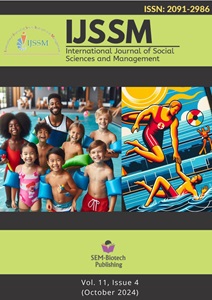Foundations and Frameworks of ELT and Applied Linguistics Research: Principles, Processes and Practices
DOI:
https://doi.org/10.3126/ijssm.v11i4.70984Keywords:
Applied Linguistics, English Language Teaching (ELT), second language acquisition (SLA), methodological diversity, Language barrier, language assessmentAbstract
This article offers a comprehensive analysis of the core principles, processes, and practices that characterize research in English Language Teaching (ELT) and Applied Linguistics. The article highlights the key distinctions between scholarship, aimed at personal knowledge acquisition, and research, which generates socially useful knowledge. Research in applied linguistics is problem-oriented, focused on addressing practical language-related challenges such as language acquisition, teaching methodologies, and multilingual communication. The paper emphasizes the interdisciplinary nature of applied linguistics, integrating insights from fields like psychology, sociology, and computer science to provide comprehensive solutions. Methodological diversity is a hallmark of this research, encompassing both qualitative and quantitative approaches, including case studies, surveys, and experimental studies. The research cycle, from identifying a problem to collecting and analyzing data, is systematically outlined. Key areas of ELT research-such as second language acquisition, curriculum development, and language assessment-are discussed, underscoring the field's contributions to both theory and practice. The article concludes by emphasizing the importance of applying research findings to improve language education, develop policies, and enhance communication across diverse linguistic contexts
Int. J. Soc. Sc. Manage. Vol. 11, Issue-4: 126-135.
Downloads
Downloads
Published
How to Cite
Issue
Section
License
Copyright (c) 2024 International Journal of Social Sciences and Management

This work is licensed under a Creative Commons Attribution-NonCommercial 4.0 International License.
This license enables reusers to distribute, remix, adapt, and build upon the material in any medium or format for noncommercial purposes only, and only so long as attribution is given to the creator.




